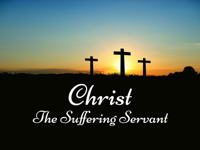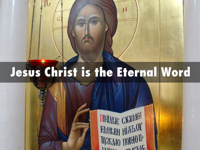 The Lord’s Supper was instituted at the last supper when Jesus celebrated the Passover with His disciples on the night before He was crucified. The Biblical account finishes, “When they had sung a hymn, they went out to the Mount of Olives” (Mt. 26:30; Mk. 14:26). The hymn they sang was probably one of the Jewish Hallel (praise) psalms (Ps. 113-118). Apparently, Psalms 113-114 were sung before the Passover meal and Psalms 115-118 after the meal. The Hebrew word “halal” means to praise, celebrate, glory or boast. And Hallelujah (hallel-Yah) means to praise Yahweh (the Hebrew word for God).
The Lord’s Supper was instituted at the last supper when Jesus celebrated the Passover with His disciples on the night before He was crucified. The Biblical account finishes, “When they had sung a hymn, they went out to the Mount of Olives” (Mt. 26:30; Mk. 14:26). The hymn they sang was probably one of the Jewish Hallel (praise) psalms (Ps. 113-118). Apparently, Psalms 113-114 were sung before the Passover meal and Psalms 115-118 after the meal. The Hebrew word “halal” means to praise, celebrate, glory or boast. And Hallelujah (hallel-Yah) means to praise Yahweh (the Hebrew word for God).
Here’s a summary of the first two Hallel psalms.
Psalm 113
The theme is to praise God because He is great and gracious. To be gracious is to be kind and generous. He is great because He is matchless and omniscient (all knowing). He is gracious because He helped the needy then and He helps us in our spiritual need. So the Jews praised God because of His attributes and His actions. This psalm begins and ends with “Praise the Lord” (or “hallelujah” in Hebrew). We can also praise God for who He is and what He does. He is still great and His kindness is shown in the salvation He offers us through the sacrifice of Jesus.
Psalm 114
The theme is to respect God’s awesome power shown in the Exodus. His power was evident in crossing the Red Sea and the Jordan River. And in the giving of the law at Mt. Sinai that caused the Israelites to tremble in fear (Ex. 19:16-18). And providing water from a rock. We can also respect God’s awesome power shown in the miraculous resurrection of Jesus.
Lessons for us
Like the Jews recalled psalms 113 -114 before the Passover meal, we can praise God when we recall:
– God’s greatness and kindness shown in the salvation He offers us through the sacrifice of Jesus, and
– God’s awesome power shown in the miraculous resurrection of Jesus.
So, let’s praise the Lord – “Now and for evermore” and “From the rising of the sun to the place where it sets” (Ps. 113:2-3). That means continually and everywhere! That’s what the Jews did in the Hallel and what Christians did in the early church (Acts 2:46-47).
George Hawke













































